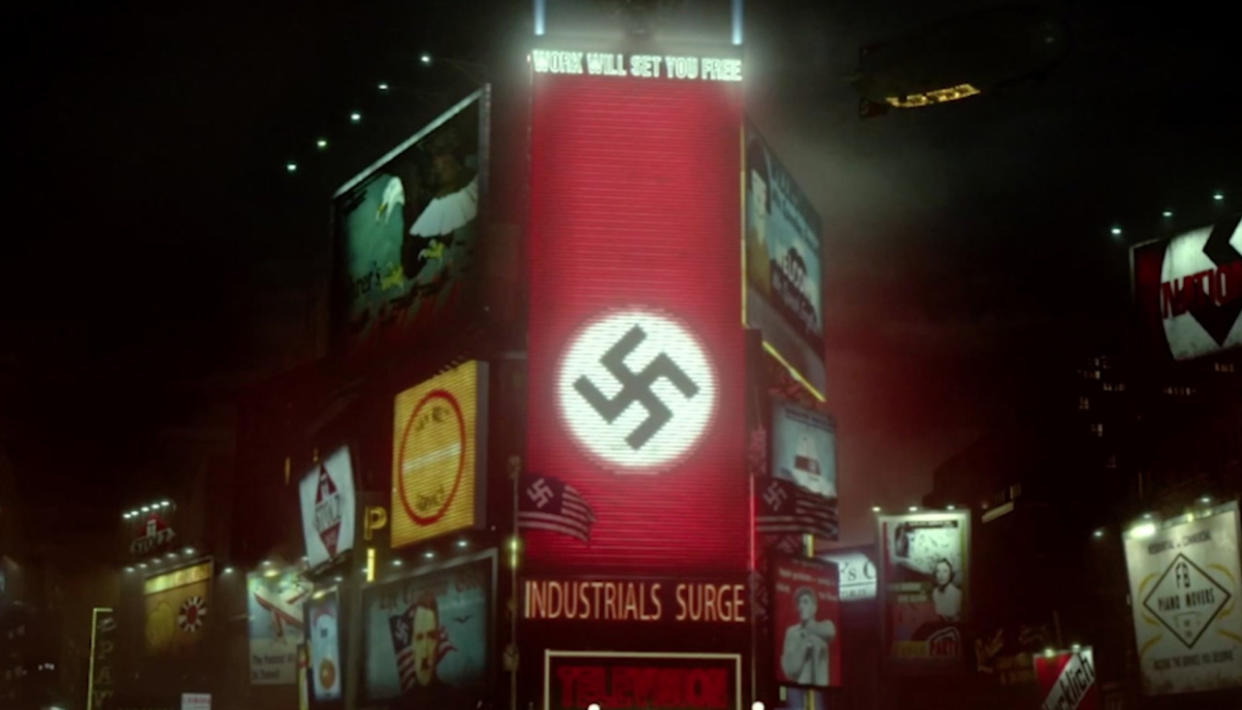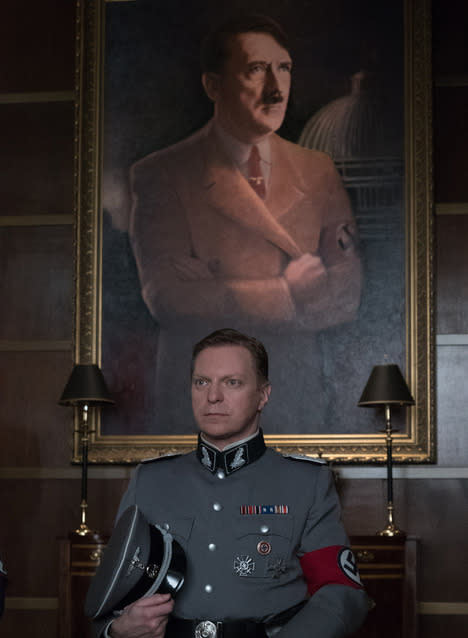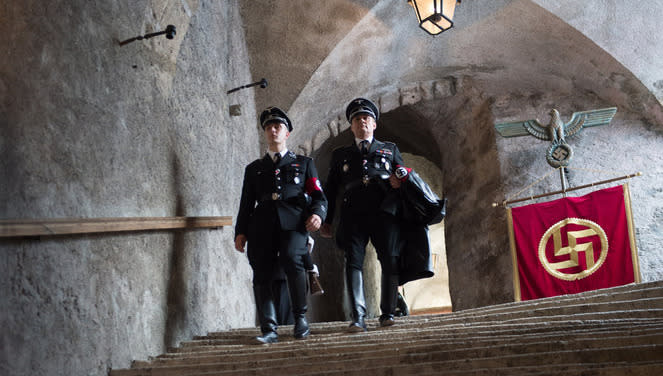What If The Nazis Had Won World War 2?

A new big budget series on Amazon answers perhaps the biggest “what if” question in history: what if the Nazis had triumphed in World War 2.
The show in question is ‘The Man In The High Castle’ which is based on the award-winning book by ‘Blade Runner’ writer Philip K. Dick.
The story starts changing history back in 1933, imagining that President Roosevelt was assassinated and replaced by the weak John Nance Garner, who stayed isolationist after the war broke out in 1939.
This meant the country was unprepared to defend itself after Pearl Harbour and was ultimately defeated. Without help from America, the UK and the USSR were also eventually conquered by Hitler. Frightening stuff.
The plot of the show starts 15 years later in 1962. The world is by now divided up into Japanese and German spheres of influence and the story deals with the tensions between Germany and Japan, as well as the horrific reality of life under Nazi occupation.
But how convincing is this alternative version of history? We spoke to Gavriel David Rosenfeld, Professor of History at Fairfield University and author of ‘The World Hitler Never Made: Alternate History and the Memory of Nazism’, who told us how plausible this nightmarish vision of the future really was.
Yahoo: How would an occupying German army have treated the citizens of the US and the UK?
Rosenfeld: They would have picked winners and losers, so to speak. They would have found willing collaborators from among the “racial elite,” that is to say, Americans of “Nordic/Aryan descent” and would have persecuted those of “inferior” background. Other Americans and Britons would have gone into the resistance.
What would life had been like for conquered Americans?
There would have been brutal political repression as the Nazi police state was set up. All Americans would have faced the moral dilemmas of working with or against the Nazi occupiers. One would like to think that America’s long traditions of individualism and democracy would have led most to make the brave decision to resist, but Dick’s novel clearly shows a readiness of many Americans to go along with their new overlords.

In the book Germany eventually launched an invasion of the US by sea and occupied the country. Was this their plan in reality?
Hitler commissioned long-range bombers with an eye towards eventually launching raids on the US east coast. However, the Germans lacked the resources to pursue this plan (plus the war in Europe kept them too bogged down to look ahead to any conflict in north America). Hitler certainly viewed the US as Germany’s most serious enemy in the long term. He sought to defeat the UK and the USSR in order to eventually square off against the US for global supremacy.
Is there any evidence for what the German plan was if they defeated the US?
The Germans did not develop actual plans for the occupation of the US, in contrast to their more detailed planning for the occupation of Great Britain (where they had arrest lists drawn up and so forth). Presumably, the same would have been done for the US had the Germans been able to defeat and occupy their European enemies.
In the plot of the book, the axis powers become rival superpowers who divide up the American mainland, does this seem plausible?
Yes. The German-Japanese alliance was one of convenience that probably would not have lasted in the long run (similar to the US/UK-soviet alliance which collapsed after Germany’s defeat).
How would the Nazi regime have evolved if it had won the war?
I personally believe that following Hitler’s eventual death, the inevitable power struggle between moderates and radicals would have been won by the latter. With Hitler in power, the Nazi regime always intensified their policies in accordance with ideological principles. Had they won the war, those principles would have been further validated and any new leader would have felt compelled to rule in their spirit. Moderates would have had little opportunity to present an alternate vision, though it is worth wondering whether the victorious Nazis might have evolved in the same way that the Soviet Union did under Gorbachev. I rather doubt it.
Was Bormann Hitler’s most likely successor, as suggested in the book?
Bormann was a figure of fascination after the war because he was thought to have escaped. But he would have faced major competition from Himmler and Goering. All of this depends, of course, on when Hitler dies. He was in terrible health already in 1945 so it’s unrealistic for him to still be alive in the early 1960s. It’s more likely for older Nazis to succeed him the earlier he dies. The later his death occurs, the higher likelihood that younger Nazis, such as Albert Speer, might have taken control.

Was the allied victory in the war inevitable, or did it hang on specific event or major decision?
There were pivotal moments where things might have gone very badly for the allies. While Britain was the only country actively fighting the Nazis in the summer of 1940 (with the soviets and Americans still on the sidelines), a successful aerial campaign might have won the war for the Nazis. Of course, their ensuing decision to invade the Soviet Union proved calamitous. Had they invaded according to the original timing (April of 1941 instead of June 22, which was the result of an unforeseen delay), the Wehrmacht might not have gotten bogged down in the frigid winter conditions. Once that happened, the soviets had time to regroup and fight on. As for the US, once Hitler declared war in December, the Germans’ fate was more or less sealed, as the combination of US/USSR/and UK economic resources dwarfed any of the means available to the Germans to fight successfully to victory.
How plausible do you find the alternative version of history set out by Philip K. Dick?
The origins of his alternate world are semi-plausible. His portrait of what living in that world (the plausibility of its origins ignored) would have been like is considerably higher. As a literary work of alternate history, it’s more concerned with the consequences of history’s alteration rather than its origins. His character portraits are very compelling. Of course, the novel is more of a commentary on America than Germany, so that’s another reason why the plausibility of the alternate world’s origins (in terms of German affairs) is of secondary significance. He’s more interested in exploring how Americans would behave under occupation.
‘The Man In The High Castle’ is available to watch on Amazon Prime now. Watch the trailer below:
Image credit: Amazon

 Yahoo Movies
Yahoo Movies 
